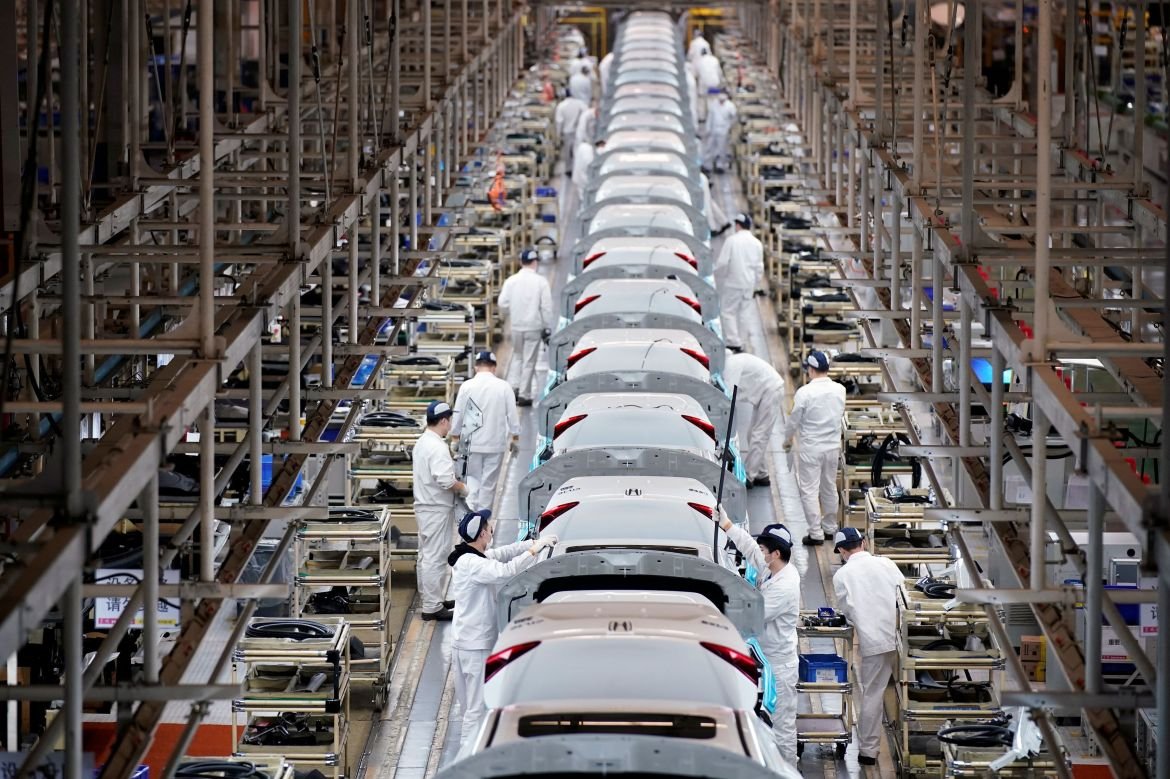HIGHLIGHTS
- Chinese manufacturers warn that strict measures to cut power output will hit production in major manufacturing hubs such as Jiangsu, Zhejiang and Guangdong.
- More than 10 of those companies filed with the Taiwan Stock Exchange this week to notify investors of their plans to temporarily close factories, at least until the end of September.
- According to Lu Ting, chief China economist at Nomura Holdings, global markets will soon feel the scarcity of supply for many products.
FULL ARTICLE
The disruption occurred at a time when manufacturers and transporters were racing against time to meet orders from clothes to toys for the year-end shopping season. Along with that, there are difficulties coming from the high price of input fuel for production, the shortage of export containers as well as the congestion of ships at major seaports.
China suffers from lack of electricity
Chinese manufacturers warn that strict measures to cut power output will hit production in major manufacturing hubs such as Jiangsu, Zhejiang and Guangdong, the three provinces contributing more than a third of China’s gross domestic product (GDP).
There are many reasons for the sudden power shortage in China. Many regions of the world are reopening after being forced to close due to COVID-19, increasing the need for production in China to serve exports, leading to a spike in electricity consumption. This causes the price of coal used for thermal power to climb.
About two-thirds of China’s electricity generation comes from coal-fired power, an area where China is seeking to reduce its dependence on climate change. Although coal prices increased, the government kept electricity prices low, increasing the consumption demand of households and businesses. Faced with this situation, a number of thermal power plants in China have had to close in recent weeks, citing maintenance reasons to ensure safe operation.
A shoe factory in Dongguan City (Dongguan) with 300 employees last week had to spend $10,000 to rent a generator for a month to maintain production. The rental price plus the money spent to buy diesel to generate electricity makes the cost of electricity double compared to normal.
Kunshan city in Jiangsu province was one of the hardest hit. There are dozens of semiconductor-related manufacturing companies here. More than 10 of those companies filed with the Taiwan Stock Exchange this week to notify investors of their plans to temporarily close factories, at least until the end of September.

Manufacturers fear an energy shortage in China could disrupt part of the technology supply chain, just as the industry is starting to prepare for a peak production period for the season. year-end shopping, including the newly launched iPhone 13 series.
New threat to global supply chains
The country-wide energy shortage has prompted economic analysts to cut their GDP growth forecasts for this year. Nomura Financial Group cut China’s fourth-quarter GDP growth to 3% from 4.4% in the previous forecast period. Production disruption will also cause markets in many Western countries to soon face a shortage of goods supply, which is likely to cause high inflation in the next few months.

The power shortage will hit heavy industries such as iron and steel production and downstream sectors of the oil and gas industry in China, analysts say. In the industrial center of Guangdong, the province’s Electricity Authority sent a notice of the decision to enforce a large-scale power cut.
According to Lu Ting, chief China economist at Nomura Holdings, global markets will soon feel the scarcity of supply for many products. “The hottest topic related to China will soon shift from the story of Evergrande to energy scarcity,” this expert commented.
Phan Quyen
FURTHER READING
UK food supply chain disrupted by CO2 scarcity













